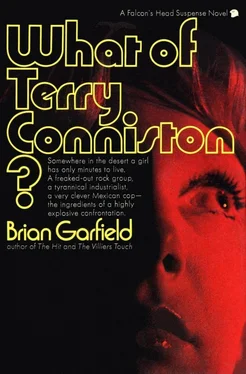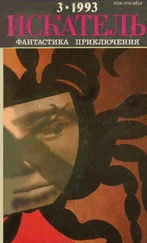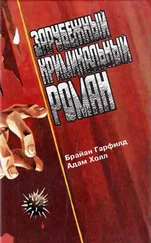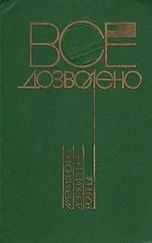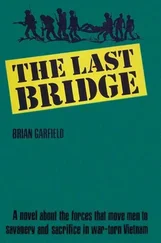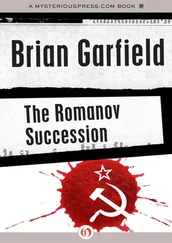Брайан Гарфилд - What of Terry Conniston?
Здесь есть возможность читать онлайн «Брайан Гарфилд - What of Terry Conniston?» весь текст электронной книги совершенно бесплатно (целиком полную версию без сокращений). В некоторых случаях можно слушать аудио, скачать через торрент в формате fb2 и присутствует краткое содержание. Город: New York, Год выпуска: 1971, Издательство: World Publishing, Жанр: Криминальный детектив, thriller_psychology, на английском языке. Описание произведения, (предисловие) а так же отзывы посетителей доступны на портале библиотеки ЛибКат.
- Название:What of Terry Conniston?
- Автор:
- Издательство:World Publishing
- Жанр:
- Год:1971
- Город:New York
- ISBN:нет данных
- Рейтинг книги:3 / 5. Голосов: 1
-
Избранное:Добавить в избранное
- Отзывы:
-
Ваша оценка:
- 60
- 1
- 2
- 3
- 4
- 5
What of Terry Conniston?: краткое содержание, описание и аннотация
Предлагаем к чтению аннотацию, описание, краткое содержание или предисловие (зависит от того, что написал сам автор книги «What of Terry Conniston?»). Если вы не нашли необходимую информацию о книге — напишите в комментариях, мы постараемся отыскать её.
A freaked-out rock group, a tyrannical industrialist, a very clever Mexican cop — the ingredients of a highly explosive confrontation.
What of Terry Conniston? — читать онлайн бесплатно полную книгу (весь текст) целиком
Ниже представлен текст книги, разбитый по страницам. Система сохранения места последней прочитанной страницы, позволяет с удобством читать онлайн бесплатно книгу «What of Terry Conniston?», без необходимости каждый раз заново искать на чём Вы остановились. Поставьте закладку, и сможете в любой момент перейти на страницу, на которой закончили чтение.
Интервал:
Закладка:
Watching the big man’s back, the shoulders lifted defensively, Oakley said in a soft voice from which he withdrew all honest feeling, “I’ll talk to Orozco, Earle. I’ll take care of it.”
He didn’t notice Conniston’s reply. A new and terrifying ambition had crept into Oakley’s mind like an infiltrating cloud.
Chapter Five
The girl whom newspapers relentlessly identified as “Industrial Heiress Terry Conniston,” disregarding the fact her father was still very much alive, emerged like a glossy mermaid from the blue pool, her chestnut hair wet-dark and shining in the sun. She slipped graceful feet into rubber thong-sandals and walked with a trim display of shapely thighs and swelling calves toward the veranda door of her bedroom, a tall girl with a good long-waisted carriage and the trim long legs of her western generation. The delicate lines and high strong cheekbones of her face seemed a denial of her father’s blunt-boned genes.
In the shade by her door she stopped to look back across the painfully glistening pool. Patches of benign clouds rode quickly across the sky from the west, dragging their shadows along the ground, and for a moment she enjoyed watching the afternoon colors change on the grass hills. Occasional dots on the slopes were her father’s cattle grazing; once she saw the dust of a running jeep on the skyline. Her face turned youthfully solemn and she brooded toward the pool, squinting; she was blue-eyed but she detested sunglasses and never wore them. She was remembering the starry evening two years ago when she had returned home from her first semester at Bennington to find the enormous pool, newly built — “A little surprise I had put in for you,” her father had said, putting his thick arm across her shoulders and walking her along the flagstones. Half a dozen muscular young men with golden tans had been splashing in the pool and Terry had remarked, “I see you’ve stocked it for me, Daddy,” and they had laughed. Those had been happier times.
She detected movement in the corner of her vision and shifted her glance to see the stirring of a screen door at the end of the far wing of the house. She had a glimpse of Frankie Adams’ lizard-narrow shape before the comedian disappeared inside. Irritated, she wondered how long he had been standing there watching her. He was a creepy one — one of Louise’s friends from show business. He had a worn-out slimy quality like old clothes with too much shine on them. She couldn’t understand why her father tolerated Adams; but then she hadn’t understood her father for a long time anyway.
She went inside, showered, dried her hair, put on a gray Neiman-Marcus minidress and matching sandals and looked at herself critically in the mirror. The female Dorian Grey , she thought. Glow of tan over fair young skin; a face somehow innocent of the fury raging inside.
Hair tumbling loose over one shoulder, handbag and school-books clutched in her arm, she hurried out of her room into the corridor; she intended to go right by the office but her father came out — as if he had been lying in wait — and blocked her way. “Hi. Being exclusive, Baby?”
I wish you wouldn’t call me that . “Hi.” Her smile was quick and false. Behind him she saw Carl Oakley in the office, tall and good-looking, preoccupied; Oakley mirrored her uncomfortable smile. Business problems, she guessed — they both looked wrung-out. Whatever it is, I’m sure money will fix it. Money always does . Her father’s answer to her every problem was, Here — buy yourself a pretty thing .
Her father frowned earnestly. “Leaving early?”
“Something I want to look up in the university library before class.” It was a lie: she had to get out of this house.
“Uh,” he said, too indifferent to press her. He made a half-turn back into the office but then he changed his mind, stopped, watched her. “We ought to make time to talk. Hell of a busy summer somehow, time just frittering away.”
Don’t tell me about all the things you haven’t had time for. I’m at the top of the list . She glanced at Carl Oakley. Now might be a good time, with Carl standing there — Carl would be a brake on her father. She said, “Summer term ends next week, you know. After exams I think I’ll go to New York.” She had a smoky voice.
He was shocked. “New York? What about Bennington? What about school?”
“I’m sick of it — I need a break. I’ll take a semester off, what’s wrong with that? Maybe I’ll go back in the spring.”
“But—” He looked around over his shoulder, seeking help from Oakley, who only looked on judiciously and said nothing. “What can you do in New York? Buy better clothes? Drink better wine? It’s just as good right here.”
She halved her nervous smile. “I guess I just want to try it on for size,” she said, and stepped past him.
“Wait.”
She made a half-turn and looked at him slantwise, her hair swinging forward across her face. Her father spread his hands helplessly. “Can’t talk to you. Why can’t we talk to each other any more?”
“Let’s skip it, Daddy.”
“No. Been skipping it too long. Christ, all our children deserve better parents. You can’t live very long without hurting someone, Baby — I’ve made my mistakes. But don’t just run out on me without a word.”
It was so unlike him to feel at fault that she only stared. Where had all this sudden guilt come from? She hadn’t said a word! Past him, moving forward to fill the office doorway with his wide shoulders, Carl Oakley wore a worried frown which he wiped off his face quickly when Conniston turned a beseeching glance toward him. She noticed in her father’s cheek a rhythmic tic she had never seen before. Her father said, “Maybe you’re right — maybe you need a break. You’ve been in school what, fifteen years, fourteen? Suppose you take a few months off, go to Europe. Maybe you and Louise could go together” — Terry made a face but he didn’t see it — “buy some clothes, bring back some paintings, go skiing in Austria Christmastime. How’d that be? I’ll arrange all the tickets.”
Had he never realized his kind of checkbook generosity killed love? “Daddy, please, for heaven’s sake!” What do you want now? You’ve never missed me. You’ve never shared anything with me .
His shoulders lifted. “If you’re a single girl in New York — look, the place is just no good for you.”
She said wearily, “Please stop treating me like a child.”
“Why should I? You’re a star-spangled adolescent, Baby.”
“With a mind of her own,” she shot back, and wheeled away.
He caught her by the elbow and spun her around; she almost lost her balance. His fist hurt her arm; she winced and he withdrew it quickly, but not before a sudden hot rage flooded the tissues of her body with a debilitating shortness of breath. “Let go of me — leave me alone!” She took a step backward and braced a hand against the corridor wall.
A dark scowl clouded his face. “Look at her, Carl. What about this escapist generation? Get tired of college so they just bug out — got the attention span of a six-year-old. Baby, time you learned to finish what you start.”
“You were ready ten seconds ago to send me to Europe on a spree.”
“A chance most girls would give their eyeteeth for. You turned it down — why? Out of spite. What have I done to make you hate me?”
Back to that again. She couldn’t make him out; he frightened her — and, by frightening her, angered her beyond reason.
He dragged the back of a hand across his mouth. “Baby—”
“ Don’t call me that !” Her voice had climbed; she clamped her lips shut and backed away. Oakley came out of the doorway and put a hand on her father’s arm. Her father shook his head as if dazed and Terry spun toward the front of the house, almost running. She batted through the front room, ignoring Louise’s startled question; ran to the carport and climbed into the red Fiberglas Daimler sports car, tossing books and handbag onto the seat and turning the key hard enough to bend it. When the engine caught she backed out with a spray of gravel and manhandled the car viciously toward the gate. By the time she passed the feeder corrals the Daimler’s eight cylinders were roaring; she fishtailed onto the graded main road at forty miles an hour and kept the pedal floored until the little red car was doing eighty and a speck of thrown dust in her eye brought her back to reality. She rubbed her eye and let the car coast down to a reasonable speed, feeling tear-moisture against her finger. She was sure now that there was no meeting ground with him. She didn’t understand him and never would; he was beyond understanding. The only way to get along with him would be at a distance, where they might achieve some precarious truce; but close to him, she hated him. I do hate him — he’s right. God, I hate him . He had killed her brother. He had driven her mother away, first to the concert stage, then to the sanitarium where she languished now in alcohol-corroded unreality. He’ll do something to me too if I don’t get away .
Читать дальшеИнтервал:
Закладка:
Похожие книги на «What of Terry Conniston?»
Представляем Вашему вниманию похожие книги на «What of Terry Conniston?» списком для выбора. Мы отобрали схожую по названию и смыслу литературу в надежде предоставить читателям больше вариантов отыскать новые, интересные, ещё непрочитанные произведения.
Обсуждение, отзывы о книге «What of Terry Conniston?» и просто собственные мнения читателей. Оставьте ваши комментарии, напишите, что Вы думаете о произведении, его смысле или главных героях. Укажите что конкретно понравилось, а что нет, и почему Вы так считаете.
